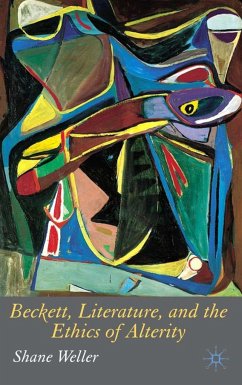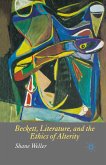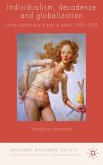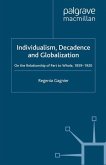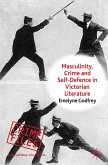In Beckett, Literature and the Ethics of Alterity Weller argues through an analysis of the interrelated topics of translation, comedy, and gender that to read Beckett in this way is to miss the strangely 'anethical' nature of his work, as opposed to the notion that the literary event constitutes the affirmation of an alterity.
'The book offers a challenge to the deconstructive readings of Benjaminian translation, an exhaustive account of the ethics of comedy, and an insightful survey and analysis of 'feminine alterities', with useful readings of Irigaray, Cixous, and Kristeva. Weller's performance of the anethical throughout the text produces an argument that will come as a surprise to many Beckett critics - a surprise because it maintains a critical reading that is neatly positioned 'between' the conventional approaches to Beckett and ethics. I strongly recommend this book.'
- Professor Richard J. Lane, Malaspina University-College, Canada
'This is an extremely well-researched and thought-out work of Beckett criticism. The chapter organization in which each of the three chosen themes is treated first from a theoretical perspective, followed by specific examples taken from Beckett, is limpid and the argument always clearly signposted. This makes the book accessible even to the reader unfamiliar with the vast array of Western thought Shane Weller summons effortlessly.'
- Helen Penet-Astbury, Études irlandaises
- Professor Richard J. Lane, Malaspina University-College, Canada
'This is an extremely well-researched and thought-out work of Beckett criticism. The chapter organization in which each of the three chosen themes is treated first from a theoretical perspective, followed by specific examples taken from Beckett, is limpid and the argument always clearly signposted. This makes the book accessible even to the reader unfamiliar with the vast array of Western thought Shane Weller summons effortlessly.'
- Helen Penet-Astbury, Études irlandaises

